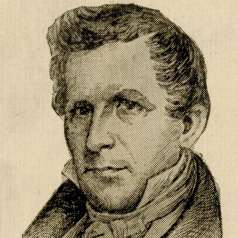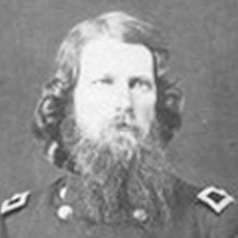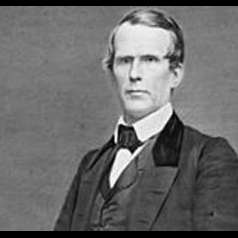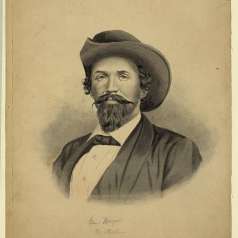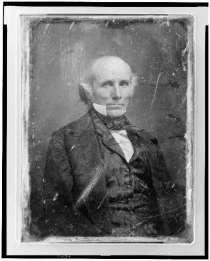
Henry S. Foote, lawyer, U.S. senator, and Confederate congressman, was born in Fauquier County, Virginia. Foote had practiced law in Virginia, Alabama, Mississippi, and California before settling in Nashville in 1859. By that time he had held a half-dozen political offices, including that of governor and United States senator while in Mississippi.
More interested in politics than law, Foote soon announced his support of Stephen A. Douglas for president. He attended the nominating convention of 1860 at Charleston and boldly predicted that the election of Abraham Lincoln would produce secession and civil war. He declared Douglas the only candidate who could establish peace.
Lincoln's election and subsequent call for 75,000 volunteers pushed Foote into the Confederacy, and he worked with Harris to accomplish Tennessee's secession.
In fall of 1861, he won election to the Confederate Congress from the Fifth (Nashville) District. Foote did not serve the state well in the Congress. President Jefferson Davis largely ignored Foote; many found him to be especially obnoxious; a Richmond newspaper editor threatened to shoot him; and others urged Confederate congressmen to censure and expel him. Finally, late in 1864, Foote fled the Confederacy.
After the war ended, President Andrew Johnson ordered him either to stand trial for treason and rebellion or leave the country within 48 hours. Foote escaped to Canada and settled in Montreal but kept in contact with friends in Washington in an effort to have his citizenship restored. After he swore an oath of allegiance to the United States and vowed not to enter politics again, he obtained permission to reenter the country. He returned to Nashville in 1867.
During the next decade, Foote practiced law and divided his time between Nashville and Washington. He supported Rutherford B. Hayes for president in 1876 and was rewarded with an appointment as superintendent of the United States Mint at New Orleans. He became seriously ill early in 1880 and returned to Nashville, where he died on May 19. He was buried in Mt. Olivet Cemetery.
Tools
Key Facts
- Governor and Senator from Mississippi, Confederate Congressman from Tennessee.
- Supported Stephen A. Douglas for president, worked for secession after Lincoln's call for troops.
- Ordered to leave the country or be tried for treason.


